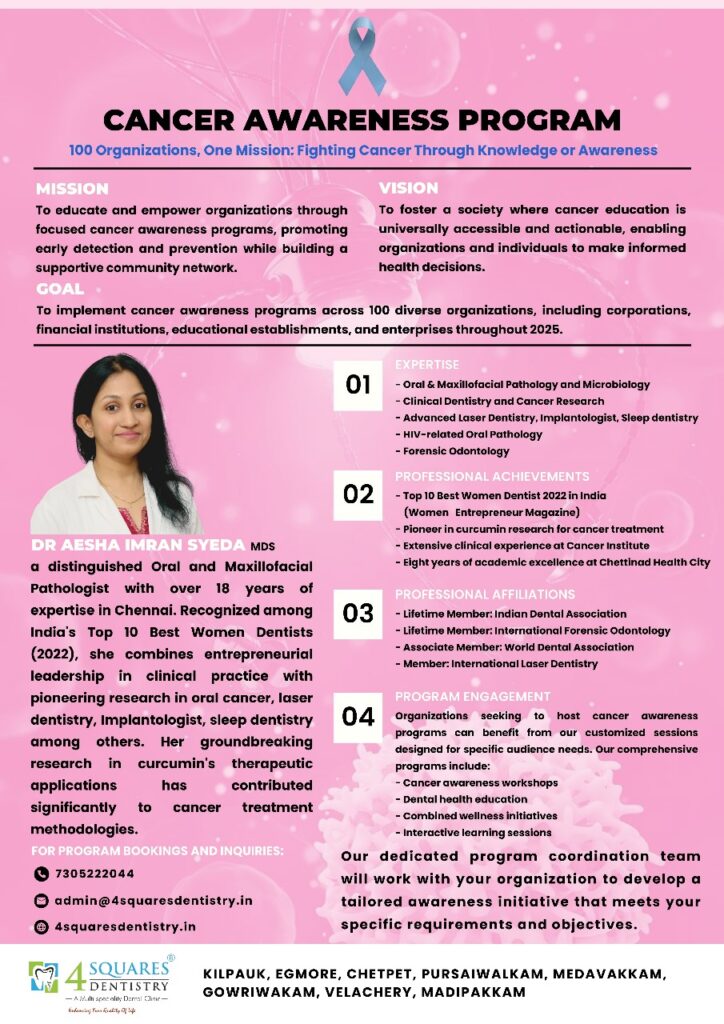
At our dental clinic in Medavakkam, Gowrivakkam, Thoraipakkam & Madipakkam, we effectively treat head and neck cancer that develops in the oral cavity or the throat. Using biopsy along with histology for a definitive diagnosis, we catch cancer as early as possible.
90% of oral cancers start as flat cells on the lips, tongue and mouth surface. They are easy to mistake as signs of less serious issues like a mouth sore. Consult a dentist in Medavakkam, Gowrivakkam, Thoraipakkam & Madipakkam if any the following benign symptoms persist:
✅ Issues with chewing: Difficulty while eating or chewing food.
✅ Constant sore throat: Persistent throat pain that doesn’t go away.
✅ Changes in the voice: Unexplained hoarseness or voice alterations.
✅ Unhealing mouth sore: Mouth sores that don’t heal within a couple of weeks.
✅ Continuous mouth pain: Ongoing discomfort or pain in the mouth.
✅ Thickening of the cheek: Swelling or thickening of the cheek or oral tissues.
✅ Dogged pain in teeth/jaw: Persistent, sharp, or throbbing pain in the teeth or jaw.
✅ Trouble with swallowing: Difficulty swallowing food or liquids.
✅ White or red patches in gums, mouth lining, tonsils, or tongue: Unusual discolorations that need immediate attention.
We do a thorough assessment of risk factors that amplify oral cancer chances like tobacco use. Our experts also look deep into the medical history for immunosuppression or cancer signs in family history. For oral cancer survivors, who have a higher risk, we pay particular attention to excessive alcohol or tobacco use.
Besides assessing the skin, the doctor looks for asymmetry in structure through palpations of the region. Laryngoscopy and pharyngoscopy may be used to examine the tongue's base, throat or larynx.
The skin lining the back of the throat and the inside of the mouth called mucosa is examined in detail for any lesions. The oral examination makes use of several light sources to detect subtle changes. Our doctors may also rely on dyes to stain suspicious lesions.
The last line of diagnosis is a biopsy, where we take a small tissue sample to examine for oral cancer. We utilise a few biopsy techniques like an excisional biopsy, incisional biopsy, or FNAC.

A state-of-the-art dental suite in Chennai, dedicated to delivering world-class dental care. We provide a comprehensive range of dental solutions for residents in Medavakkam, Gowrivakkam, Thoraipakkam & Madipakkam, and surrounding areas of South Chennai.